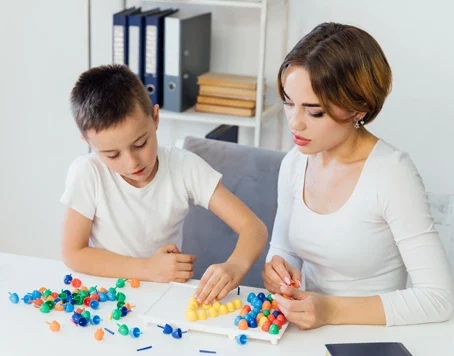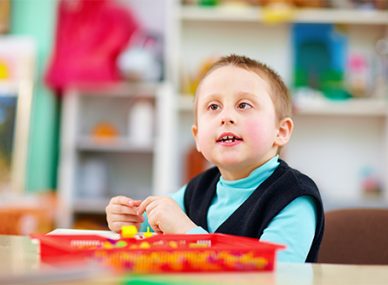Social interaction is no big deal for you or the majority of children. But, for those who are diagnosed with autism, it can be very challenging, especially for little children. For them, even having simple conversations, talking to friends, or in fact, making friends, or knowing how to read emotions—all look so difficult. But, it does not mean they can’t learn it. All they need is proper support and structured instruction from therapists or experts who are dealing with similar types of children with autism. Continuous training and support often help them learn valuable social skills.
Certified therapists design intensive therapy for autism in Dubai, which targets communication, emotional control, and of course, socialization. The goal of the therapy program is not just to teach some skills but to give children the power to communicate, be confident, and be able to connect to the world.
How Social Skills Programs Can Make a Huge Difference in the Lives of These Children
Autism Speech Development
Parents already know that children with autism have serious trouble with verbal communication. They can’t comprehend what others say, and even if they do, they fail to convey their thoughts and wants. Many of these kids find it hard to even build proper sentences, recognize tone, or even answer to their name. Social skills programs specifically function with targeted strategies for autism speech development. This enables the child to:
- Improve vocabulary
- Learn the basic skills to start and maintain the flow of conversations
- Identify non-verbal signals, like different types of facial expressions and body language, as these are necessary parts of communication.
With continuous practice guidance, many children show remarkable improvements in effective communication.
Promotes Emotional Awareness
Social skills are more than conversation. They include recognizing emotions—both their own and others’. Targeted therapeutic programs utilize visual aids, role-playing, and everyday interactions to teach children many things like:
- Recognize emotions in themselves and others
- Respond appropriately in social situations
- Develop empathy and self-awareness
When a child is able to communicate emotions effectively, frustrations subside, and relationships start to develop.
Improves Physical and Social Coordination
Most children with autism have poor motor skills, balance, and physical coordination. This hinders their participation in social activities such as playground play, sports, or even handshakes. Physical therapy for autism can be a great way to deal with it. It can help-
- Enhance motor planning and coordination
- Improve muscle control for greater social involvement
- Promote self-confidence in group activities
Physical growth fosters social development. When a child can move and engage safely, they feel more a part of routine daily life.
Lessens Social Anxiety
New settings and interactions create anxiety in children with autism. They might enjoy routine but struggle with changes. Social skills programs alleviate this by:
- Offering predictable, structured interactions
- Educating them in social anxiety coping strategies
- Developing confidence in handling new situations
As kids become accustomed to social clues and expectations, they become more comfortable. This results in increased independence at school, family functions, and public places.
Encourages Future Independence
All parents hope to see their children become successful. Social skills training teaches children skills that will last them a lifetime. From friendship skills to dealing with workplace interactions as an adult, these programs establish the groundwork for independence and achievement.
A Better Future Begins Today
If you’re a parent who wants in-depth, Intensive therapy for autism in Dubai, look no further than the prestigious clinic, Hope AMC. We have certified therapists who specialise in the development of autism speech, social skills, and physical therapy for autism.
Our therapists can design a unique or targeted therapy program for your child to help them gain the sheer confidence to talk, interact, and form close connections.
Visit our official website or official social media channels to take a look at some of the successful case studies. If you want to learn more about the therapy programs, talk to one of our therapists. You can easily book an appointment now!






